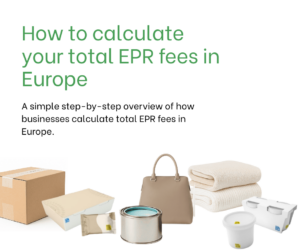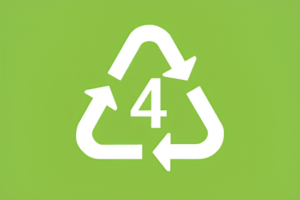Northern Ireland – Labelling Requirements
Northern Ireland – Labelling Requirements
The United Kingdom’s departure from the European Union has significantly impacted trade regulations, particularly for goods moving between Great Britain and Northern Ireland. This article focuses on the specific labelling requirements for goods destined for the Northern Ireland market.
- Country of Origin. For certain products, such as meat, fish, and some agricultural goods, the country of origin must be clearly indicated on the label. This requirement aims to ensure traceability and comply with food safety regulations.
- “Not for EU” Labelling. For many goods moving from Great Britain to Northern Ireland, the label must include the phrase “Not for EU” to prevent their onward movement into the Republic of Ireland and the rest of the European Union.This requirement applies to a range of products, including food, drink, and certain other goods.
- EU Conformity Marks. Products that require EU conformity marks (e.g., CE marking) must continue to display these marks when sold in Northern Ireland.
- Language Requirements. Labels must be in English.The use of Irish may also be required in certain circumstances.
- Unit of Measure. Metric units (e.g., grams, kilograms, liters) are generally required for most products.
Specific Requirements for Different Product Categories:
- Food. Strict regulations apply to food labelling, including ingredient lists, allergen information, and nutritional information. Specific rules exist for pre-packaged foods, fresh produce, and meat products.
- Cosmetics. Compliance with EU cosmetic regulations is essential, including ingredient lists and safety information.
- Medicines. Labelling requirements for medicines are highly regulated and subject to strict controls.
Individual labels
The Northern Ireland Protocol (NIRP) mandates that certain food products destined for Northern Ireland must display the label ‘Not for EU.’ This phased implementation began in October 2023 and will continue until July 2025. This requirement applies to both goods imported into Great Britain from the EU and those originating from the rest of the world that are eligible for movement under the NIRP. Importantly, these labelling requirements only apply to products entering Northern Ireland through the NIRP arrangements.
- Under the Northern Ireland Protocol (NIRP), all meat products and some dairy products transported from Great Britain to Northern Ireland require individual product labelling. This guidance outlines the specific products subject to these labelling rules in Phase 1. Refer to the provided list of commodity codes for a complete overview of products included in Phase 1. Please note that this list may be subject to future updates. Any dairy product not explicitly included in the Phase 1 list will fall under the labelling requirements of Phase 2.
- Starting from 1 October 2024, all milk and dairy products, in addition to those already included in Phase 1, that are transported to Northern Ireland under the Northern Ireland Protocol (NIRP) will require individual product labelling. Please refer to the updated list of commodity codes to determine which products are subject to labelling requirements in Phase 2. Note that this list may be subject to future changes.
- Starting July 1, 2025, the range of products subject to individual labelling requirements under the Northern Ireland Protocol (NIRP) expands to include composite products, fruits, vegetables, fish, and certain other categories.
It’s crucial to note that not all goods transported under the NIRP require individual product labelling. A separate exception list outlines products exempt from this requirement. If individual product labelling is applied, there is no need for additional labelling on the outer packaging or the use of signage.
Phase 1: Products that need individual product labels from 1 October 2023
Under the Northern Ireland Protocol (NIRP), individual labelling is mandatory for all pre-packaged meat, pre-packaged meat products, and meat packed on sales premises, as well as certain dairy products, moving between Great Britain and Northern Ireland.
- Pre-packaged refers to products packaged for direct sale to consumers, where the contents cannot be altered without opening or modifying the packaging.
- Processing encompasses any significant alteration to the original product, including processes like heating, smoking, curing, and marinating.
Compound products are defined as those containing multiple products of animal origin (POAO) with minimal plant-based ingredients (primarily for flavoring). Examples include pâté (containing duck and dairy) and steak with a butter pellet. These compound products fall under the initial phase of labelling requirements if they primarily consist of meat and dairy products. - For further guidance on identifying compound products, please refer to the relevant resources.
- Prepacked meat encompasses any edible animal part intended for human consumption, including chilled, frozen, dried, and ambient varieties.
Prepacked meat
This definition encompasses a wide range of meat products, such as:
- Red meats: Beef, pork, lamb, veal, venison, and other domestic red meats like bison and buffalo.
- Game meats: Rabbit, hare, rodents, game birds, and other wild game hunted for consumption.
- Poultry: Chickens, turkeys, and other farmed or wild birds.
- Exotic meats: Kangaroo, ostrich, and other meats intended for human consumption.
- Processed meats: This includes items like sausages, burgers, chicken nuggets, pâté, and various meat preparations.
- Other animal products: Such as animal blood and gelatin (though sweets containing gelatin generally do not require individual labelling as they are shelf-stable).
Prepacked refers to meat packaged for direct sale to consumers, where the contents cannot be altered without opening or modifying the packaging.
Prepacked meat products encompass those that have undergone significant processing, such as heating, smoking, curing, drying, marinating, extraction, or extrusion.
These products can be found in various forms, including fresh, chilled, frozen, deep-frozen, or thawed states.
Meat packed on sales premises refers to meat that is prepared and packaged for immediate sale to consumers within the same location. This includes:
- Freshly butchered meat: Such as cuts of steak, lamb, poultry, or game, prepared and packaged on-site.
- Processed meat products: Including items like freshly minced meat or burgers prepared and packaged within the sales area.
- Meat displayed at deli counters or butcher counters: Where the meat is packaged for sale directly to the customer.
This category also includes certain dairy products:
- Pasteurized milk, buttermilk, and cream products.
- Cottage cheese, quark cheese, and raw (unpasteurized) cheese from any animal source.
- Crème fraîche and sour cream.
Effective October 1, 2024, all milk and dairy products moving to Northern Ireland under the Northern Ireland Protocol (NIRP) will require individual product labels, in addition to those already subject to labelling in Phase 1.
Dairy products encompass a wide range, including:
- Milk in various forms (e.g., pasteurized, UHT, thermised);
- Buttermilk, cream, whey, and butter;
- Caseins and anhydrous milk fat (AMF);
- Cheese, yogurt, kefir, and other fermented dairy products;
- Flavored dairy products;
- Ice cream made solely from dairy ingredients, stabilizers, and flavorings.
However, composite products containing dairy products combined with other animal origin products (e.g., fish with a dairy-based sauce) are also subject to labelling in Phase 2.
It’s crucial to note that the inclusion of plant-based ingredients for flavoring, sweetening, thickening, or decoration does not exclude a product from the ‘dairy product’ category. For instance, cheese with added herbs or yogurt with fruit still fall under this classification.
Composite products containing only dairy and other animal products (e.g., pâté with added dairy) are considered part of Phase 1 labelling requirements.
Expanded Labelling Requirements from 1 July 2025
Starting July 1, 2025, the scope of products requiring individual product labels under the Northern Ireland Protocol (NIRP) will expand. This includes:
- Pet food;
- Unprocessed fruits and vegetables;
- Fish;
- Eggs;
- Honey;
- Composite products: These are products that combine plant-based ingredients with processed animal products intended for human consumption. Examples include lasagne, pork pies, scotch eggs, and ice cream containing dairy and plant-based oils (excluding those used solely for flavoring).
Note: Composite products were not included in the labelling requirements of Phases 1 and 2. Labelling for these products will be implemented in Phase 3.
Products Exempt from Individual Labelling
The following products do not require individual product labels under the Northern Ireland Protocol (NIRP), although box and retail premises labelling requirements may still apply:
- Loosely sold items: Products sold directly to consumers by weight without pre-packaging.
- Retailer-prepared products: Items prepared and packaged on-site by retailers for immediate consumption by the customer.
- Foodservice products: Products intended for immediate consumption within restaurants, canteens, and other food service establishments.
Exempted Shelf-Stable Composite Products:
- Confectionery: Including sweets, white chocolate, and chocolate-based products.
- Cereal-based products: Pasta, noodles, couscous, and prepared cereals.
- Bakery items: Bread, cakes, biscuits, waffles, wafers, rusks, and toasted bread products.
- Olive products: Olives stuffed with fish.
- Coffee and tea products: Extracts, essences, and concentrates of coffee, tea, or maté.
- Roasted chicory and substitutes: Roasted chicory and other roasted coffee substitutes, along with their extracts and essences.
- Soup stocks and flavorings: Packaged for final consumer use, including miso and soy sauce containing small amounts of fish soup stock.
- Food supplements: Containing small amounts (less than 20% total) of animal products or substances like glucosamine, chondroitin, or chitosan.
- Liqueurs and cordials.
Exempt Products: No Individual Labelling Required
This category includes products that meet UK public health standards and do not require specific certification or controls at agri-food entry points as outlined in the Official Controls Regulation. These products generally pose minimal risk and include:
Processed and canned fruits and vegetables:
- Including fruit juices;
- Frozen peas;
- Dried herbs and spices;
- Flavourings;
- Plant-based milks: Such as oat, almond, and soy milk;
- Jams, peanut butter, maple syrup, and other syrups;
- Olive oil and vinegar;
- Tomato ketchup and other fruit and vegetable condiments;
- Jars of pasta sauce;
- Nuts and seeds;
- Popcorn, crackers, and crisps;
- Tomato soup;
- Frozen chips;
- Tea bags, dried tea leaves, and coffee;
- Cereals, flour, and rice;
- Natural sugar;
- Wine;
- Soft drinks;
- Beer and cider;
- Spring water, mineral water, and other bottled waters.
Additionally, the following fruits are exempt from individual labelling:
- Pineapples;
- Bananas;
- Coconuts;
- Dates;
- Durians.
Please note: This list of exempt products may be subject to future updates and revisions.
Exemptions: Products Not Requiring Individual Labels
Certain products are exempt from individual “Not for EU” labelling requirements, though box or retail premises labelling may still apply. These exemptions include:
- Loosely sold items: Products sold directly to consumers without pre-packaging, such as those weighed or measured at the point of sale.
- Retailer-prepared products: Items prepared and packaged on-site by the retailer for immediate consumption by the customer.
- Foodservice products: Items intended for immediate consumption within restaurants, canteens, and similar establishments.
Exempt Shelf-Stable Composite Products:
- Confectionery: Sweets, white chocolate, and chocolate-based products.
- Cereal-based products: Pasta, noodles, couscous, and prepared cereals.
- Bakery items: Bread, cakes, biscuits, waffles, wafers, rusks, and toasted bread.
- Olive products: Olives stuffed with fish.
- Beverage products: Extracts, essences, and concentrates of coffee, tea, or maté. Roasted chicory and coffee substitutes.
- Soup stocks and flavorings: Packaged for final consumer use, including miso and soy sauce with small amounts of fish stock.
- Food supplements: Containing small amounts (less than 20% total) of animal products or substances like glucosamine, chondroitin, or chitosan.
- Alcoholic beverages: Liqueurs and cordials.
Retail Premises Labelling Requirements in Northern Ireland
For products lacking individual “Not for EU” labels, retail premises in Northern Ireland must clearly inform customers that these goods are not intended for sale in the EU. This requirement, effective from October 1, 2023, applies to all retail establishments within Northern Ireland.
Shelf-Level Labelling:
- Food products without individual labels must display a “Not for EU” label at shelf level.
- Retailers can implement this in various ways, such as attaching a separate label next to the price tag or incorporating the information into the existing price tag.
In-Store Signage:
- All retail premises must display posters informing customers that goods moved to Northern Ireland under the Northern Ireland Protocol are intended for consumption within the UK and are not for sale or consumption within the EU.
- Posters can be created by individual retailers or by utilizing government-provided templates.
- The number and placement of posters will be determined by each individual store.
Exemptions:
- Catering establishments, such as factory canteens, institutional canteens, restaurants, and other food service operators, are exempt from shelf-level labelling for products intended for immediate consumption on-site.
Retailer Responsibility:
- Retailers are responsible for ensuring that appropriate labelling and signage are in place to comply with these requirements.
30-Day Transition Period
To allow businesses to adjust, a 30-day transition period will be implemented at the beginning of each labelling phase. This means that goods already on the Northern Irish market when a new phase begins will not require immediate re-labelling. These products can continue to be sold during this transition period.
Following the transition period:
- Goods subject to Phase 2 labelling requirements, which were already in Northern Ireland before October 1, 2024, will have until October 31, 2024, to comply with the individual product labelling requirements.
- Similarly, goods subject to Phase 3 labelling requirements, which were in Northern Ireland before July 1, 2025, will have until July 31, 2025, to comply with individual product labelling requirements.
After these transition periods, all relevant goods must be labelled with “Not for EU” both on the individual products and their packaging (boxes, crates, etc.).
Technical Requirements for Labelling
“Not for EU” labels can be applied to products, boxes, or shelves using various methods, including writing, printing, stencilling, embossing, or impressing. Adhesive labels (stickers) or sticky tape are acceptable, but they must be securely affixed to prevent easy removal.
Visibility and Readability:
Labels must be clearly visible and easily readable. They should not be obscured by other text, images, or packaging elements.
Placement:
- Products: Labels can be placed anywhere on the product itself.
- Boxes and crates: Labels can be applied to any suitable surface.
- Multipacks: Only the outer packaging of a multipack requires a label.
Existing Labelling Requirements:
- Product labelling must also comply with all existing labelling requirements for the specific product type.
Impact of the Windsor Framework:
The Windsor Framework, agreed upon in February 2023, aims to simplify trade between Great Britain and Northern Ireland. While specific labelling requirements may evolve, it is crucial to stay informed about the latest updates and guidance from relevant authorities.
Failure to comply with labelling requirements can result in:
- Penalties and fines;
- Product seizures;
- Damage to brand reputation;
- Disruption to supply chains.
Navigating the labelling requirements for goods destined for Northern Ireland can be complex. Businesses must carefully research and comply with all relevant regulations to ensure smooth trade flows and avoid potential penalties.



